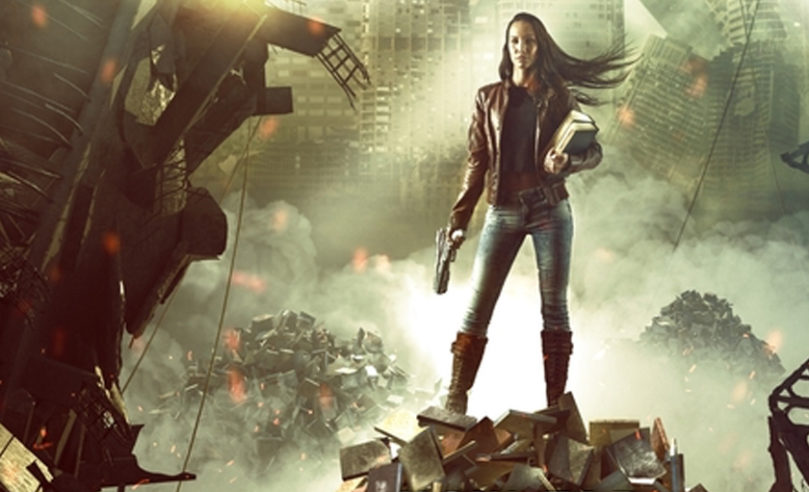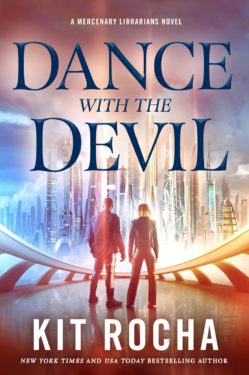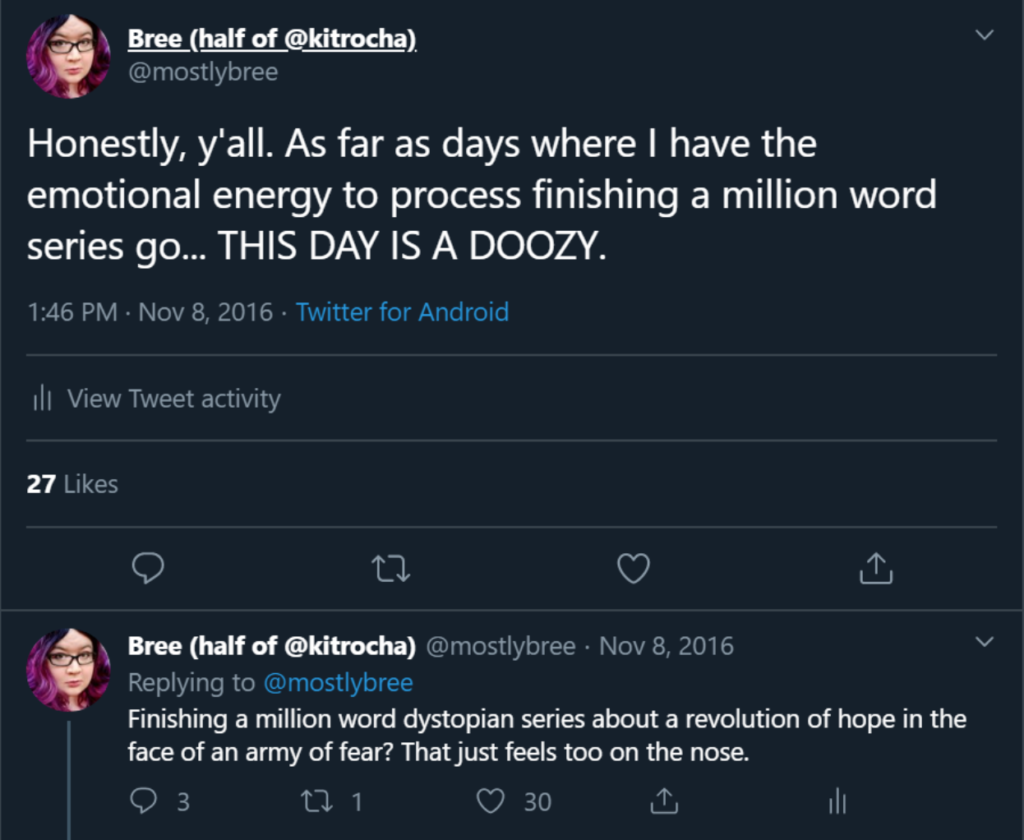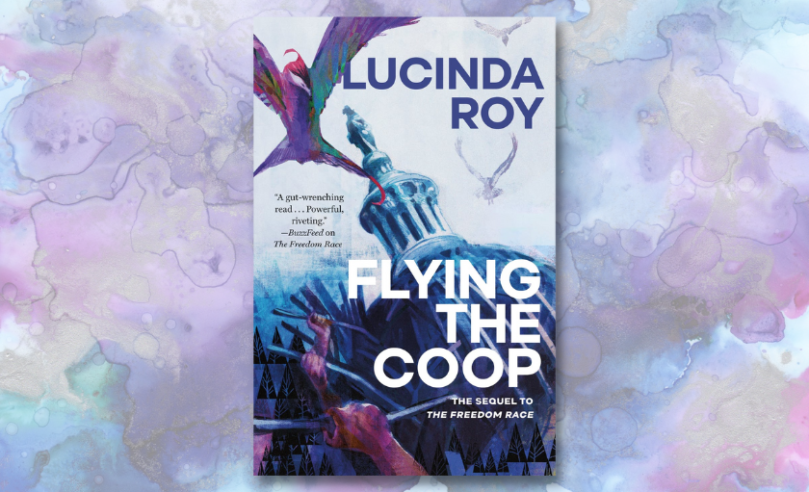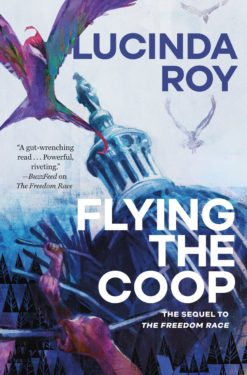




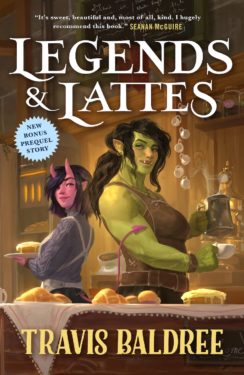 The much-beloved BookTok sensation from Travis Baldree, Legends & Lattes is a novel of high fantasy and low stakes.
The much-beloved BookTok sensation from Travis Baldree, Legends & Lattes is a novel of high fantasy and low stakes.
The new paperback edition will include a very special, never-before-seen bonus story, ‘Pages to Fill.’
Come take a load off at Viv’s cafe, the first & only coffee shop in Thune. Grand opening!
Worn out after decades of packing steel and raising hell, Viv, the orc barbarian, cashes out of the warrior’s life with one final score. A forgotten legend, a fabled artifact, and an unreasonable amount of hope lead her to the streets of Thune, where she plans to open the first coffee shop the city has ever seen.
However, her dreams of a fresh start filling mugs instead of swinging swords are hardly a sure bet. Old frenemies and Thune’s shady underbelly may just upset her plans. To finally build something that will last, Viv will need some new partners, and a different kind of resolve.
“Take a break from epic battles and saving the world. Legends & Lattes is a wholesome, cozy novel that feels like a warm hug. This is my new comfort read.”—Genevieve Gornichec, author of The Witch’s Heart
Please enjoy this free excerpt of Legends & Lattes by Travis Baldree, on sale 11/8/22.
PROLOGUE
Viv buried her greatsword in the scalvert’s skull with a meaty crunch. Blackblood thrummed in her hands, and her muscular arms strained as she tore it back and out in a spray of gore. The Scalvert Queen gave a long, vibrating moan . . . and then thundered to the stone in a heap.
With a sigh, Viv slumped to her knees. The persistent twinge in her lower back flared up, and she dug in the knuckles of one huge hand to chase it away. Wiping sweat and blood from her face, she stared down at the dead queen. Cheers and shouts echoed from behind her.
She leaned closer. Yes, there it was, right above the nasal cavity. The beast’s head was twice as wide as she was—all improbable teeth and uncountable eyes, with a huge, underslung jaw—and in the middle, the fleshy seam she’d read about.
Jamming her fingers into the fold, she pried it open. A sickly golden light spilled out. Viv slid her whole hand into the pocket of flesh, curled her fist around a faceted, organic lump, and yanked. It came free with a fibrous ripping sound.
Fennus moved to stand behind her—she could smell his perfume. “Is that it, then?” he asked, only a little interested.
“Yep.” Viv groaned as she hoisted herself to her feet, using Blackblood as a crutch. Without bothering to clean the stone, she stuffed it into a pouch on her bandolier, then propped the greatsword on her shoulder.
“And that’s truly all you want?” Fennus squinted up at her. His long, beautiful face was amused.
He gestured at the walls of the cavern, where the Scalvert Queen had entombed untold wealth within sheets of hardened saliva. Wagons, chests, and the bones of horses and men hung suspended amidst gold, silver, and gemstones—the shiny castaways of centuries.
“Yep,” she said again. “We’re square.”
The rest of the party approached. Roon, Taivus, and little Gallina brought with them the exhausted but exultant chatter of the victorious. Roon combed muck from his beard, Gallina sheathed her daggers, and Taivus glided behind them both, tall and watchful. They were a good crew.
Viv turned away and strode toward the cavern’s entrance, where dim light still filtered through.
“Where are you goin’?” hollered Roon, in his rough, affable voice.
“Out.”
“But . . . aren’t you gonna—?” began Gallina.
Someone shushed her, most likely Fennus.
Viv felt a prick of shame. She liked Gallina the most, and probably should have taken the time to explain.
But she was done. Why drag things out? She didn’t really want to talk about it, and if she said anything more, she might change her mind.
After twenty-two years of adventuring, Viv had reached her limit of blood and mud and bullshit. An orc’s life was strength and violence and a sudden, sharp end—but she’d be damned if she’d let hers finish that way.
It was time for something new.
1
Viv stood in the morning chill, looking down into the broad valley below. The city of Thune bristled up from a bed of fog that hazed the banks of the river bisecting it. Here and there, a copper-clad steeple flashed in the sun.
She had broken camp in the predawn dark, and her long legs had eaten up the final few miles. Blackblood weighed heavy on her back, the Scalvert’s Stone tucked in one of her inner jacket pockets. She could feel it like a hard, withered apple, and reflexively touched it through the cloth from time to time to reassure herself it was still there.
A leather satchel hung over one shoulder, stuffed mostly with notes and plans, a few chunks of hardtack, a purse of platinum chits and assorted precious stones, and one small, curious device.
She followed the road down and into the valley as the fog burned away, and a lonely farmer’s cart tottered by, stuffed with alfalfa.
Viv felt a rising sense of nervous elation, something she hadn’t felt in years, like a battle-cry she could barely hold in. She’d never prepared as much for any one moment. She’d read and questioned, researched and wrestled, and Thune had been the city she’d chosen. When she’d crossed every other location off her list, she’d been absolutely positive. Suddenly, that conviction seemed foolish and impulsive, yet her excitement remained undimmed.
No outer wall surrounded Thune. It had sprawled far beyond its original, fortified boundaries, but she sensed herself approaching the edge of something. It had been ages since she’d stayed in one place more than a handful of nights, the duration of a job. Now, she was going to put down roots in a city she’d visited maybe three times in her entire life.
She stopped and looked around warily, as though the road wasn’t entirely vacant, the farmer long gone into the mist. Withdrawing a scrap of parchment from her satchel, she read the words she’d copied.
Well-nigh to thaumic line,
the Scalvert’s Stone a-fire
draws the ring of fortune,
aspect of heart’s desire.
Viv tucked it carefully away again, exchanging it for the device she’d purchased a week before from a thaumist scholar in Arvenne—a witching rod.
The small, wooden spindle was wrapped in copper thread, which covered the runes inscribed along its length. A wishbone of ash was fitted over the top and into a groove so it spun freely. She held it in her fist, feeling the copper thread absorb the warmth of her palm. The spindle gave a barely perceptible tug.
At least, she was fairly certain it was a tug. During the thaumist’s demonstration, there had been a stronger pull. Viv pushed down the sudden thought that it had all been a parlor trick. As a rule, folks with a fixed address avoided swindling an orc twice their height who could snap a wrist if they shook hands too firmly.
She took a deep breath and strode into Thune with the witching rod before her.
Thune’s wakeful noises rose as she moved farther into the city. At the outskirts, the buildings had been mostly wooden, with some river stone foundations interspersed. The deeper she ventured, the more stone prevailed, as though the city had calcified as it aged. Muddy dirt gave way to a smattering of stone lanes, then cobbles near the city’s core. Temples and taverns huddled around squares featuring statues of people who probably used to be important.
Any doubts about the witching rod had evaporated. It definitely pulled now, like a living thing—brief twitches growing into insistent tugs. Her research hadn’t been in vain. Ley lines were clearly threaded beneath the city, powerful avenues of thaumic energy. Scholars debated whether they grew where people settled or gathered folk near like warmth in winter. What mattered to Viv was that they were here.
Finding a potent ley line was only the start, of course.
The little wishbone of ash-wood twitched left and right, tugging one way for a time before reversing and pulling like a fish on a hook in another direction. After a while, she didn’t have to look at it. The feel of it was enough, and Viv paid more attention to the buildings she passed.
The device ushered her down the major thoroughfares, through the squiggling alleys that stitched them together, past blacksmiths and hostels and markets and inns. There were few people her height on the streets, and she never found herself crowded. Blackblood tended to have that effect.
She passed through all the layers of smell that made up a city—baking bread and waking horses and wet stone and hot metal and floral perfume and old shit. The same smells you found in any city, but underneath them, the morning scent of the river. Sometimes, between the buildings, she could see the blades of the waterwheel at the flour mill.
Viv let the rod lead her where it wanted. A few times the tug was so strong she stopped and inspected the buildings nearby— but disappointed, she’d continue onward. The rod would resist for a while, until it seemed to give up, finding a new direction in which to surge.
At last, when it yanked hard, she came to a semi-dazed stop and found what she needed.
Not on the High Street—that would’ve been too much to hope for—but it was only one removed. Kerosene streetlamps dotted the length, extinguished now, and like as not, you wouldn’t be knifed there after dark. The buildings on Redstone showed their age, but the roofs seemed in good repair. All except one in particular, and here, the witching rod drew her closer.
It was small for what it was. A battered sign hung from the single remaining iron eyehook—PARKIN’S LIVERY—the paint of the embossed letters long since flaked away. There were two large, iron-bound wooden doors, but they were ajar, and the crossbeam was leaning against the wall nearby. Another smaller, orc-sized door was amusingly padlocked to the left of it.
Viv ducked her head in for a look. Light filtered from a hole in the roof above, and a handful of clay shingles lay shattered across the broad alleyway leading between six horse stalls. A ladder of dubious sturdiness led to a loft, and to the left, a small office with a back room. The sour smell of moldering hay came from the trough at the back. Dust swirled in beams of light, as though it never settled.
It was as perfect as she could hope for.
She tucked the witching rod away.
When she reemerged into the growing traffic of the street, she spied a knobbly old woman sweeping the stoop across the way. Viv was pretty sure she’d been sweeping since her arrival, the threshold no doubt sparkling at this point, but she continued to attack it with determination, shooting Viv a surreptitious look every other second.
Viv strode across the street. The old woman had the good grace to appear surprised, mustering something approaching a smile as she did.
“Do you know who owns this place?” asked Viv, pointing back at the livery.
The woman was less than half her height and had to crane to make eye contact. Her eyes disappeared as she compressed her face into a considering tangle of wrinkles.
“The livery?”
“Yep.”
“Wellll.” She dragged the word out thoughtfully, but Viv could tell there was nothing wrong with her memory. “That’s old Ansom, if I recollect properly. Never had much of a head for business, that man, not for trade nor husband’s work, neither, to hear his old lady tell it.”
Viv didn’t miss the woman’s suggestive pump of the eyebrows. “Not Parkin?”
“Nope. ’Twas too cheap to change the sign when he bought it.”
Viv’s smile was amused, her lower fangs prominent. “Any idea where I can find him?”
“Couldn’t say for certain. But I imagine attendin’ to the only work he never failed at.” She tipped her free hand, bringing an imaginary tankard to her lips. “If you really want to find him, I’d try the places on Rawbone Alley. Head about six over.” She gestured to the south.
“At this time of morning?”
“Oh, this business he’s serious about.”
“Thanks, miss,” said Viv.
“Oh, miss, is it!” cackled the woman. “You c’n call me Laney. You plannin’ to be my new neighbor . . . ?” She made a give-itover motion.
“Viv.”
“Viv,” said Laney, nodding.
“I guess we’ll see. Depends on whether he’s as bad a businessman as you say.”
The old woman was still laughing as Viv left for Rawbone Alley.
No matter what Laney said, Viv didn’t really expect to find the much-maligned Ansom at this time of day. She figured she’d ask after him in any swill-joint with an open door and, once she knew his haunts, track him down after the day wore on.
Turned out, she only needed three stops before she found him in residence. The tavernkeep looked her up and down after she asked, raising his eyebrows pointedly at Blackblood’s hilt over her shoulder.
“No trouble from me, just business,” she said evenly. She tried to look less imposing.
Apparently satisfied that she wasn’t spoiling for a fight, he cocked a thumb at the corner and went back to swabbing the grime of the bar-top into new and more interesting locations.
As Viv approached the table, she got the overwhelming impression that she was entering the den of some elderly woodland beast. A badger perhaps. Not a dangerous sense, but the feeling of a place where he spent so much time that it had absorbed his smell and become essentially his.
He even looked like a badger, a big, greasy black beard striped with white tangled across his chest. As wide as he was tall, he occupied so much space between the wall and table that when he inhaled deeply, the thing rocked up on its legs.
“You Ansom?” asked Viv.
Ansom allowed that he was.
“Mind if I sit?” she asked and then sat anyway, leaning Blackblood against the back of the chair. Truth be told, she wasn’t really accustomed to asking permission.
Ansom stared at her over puffy lower lids. Not hostile, but wary. A tankard sat before him, nearly empty. Viv caught the tavernkeep’s attention and gestured at it, and Ansom brightened considerably.
“Much obliged,” he muttered.
“I hear you own the old livery on Redstone. That true?” asked Viv.
Ansom allowed that he did.
“I’m looking to buy,” she said. “And have a feeling you might be looking to sell.”
Ansom seemed surprised, but only briefly. His gaze sharpened, and while he might not have had a head for business, Viv was pretty sure he had one for haggling.
“Maybe,” he rumbled. “But that’s some prime real estate. Prime! I’ve had offers before, but most of ’em don’t see past the place to really appreciate the value of the location. That is to say, they underbid.”
At this point, the tavernkeep swapped his tankard for a fresh one, and Ansom visibly warmed to his subject.
“Oh, yes, so many embarrassing offers. I have to warn you, I know what that lot is worth, and I can’t see myself selling to anyone but a serious businessman. Er . . . businesswoman,” he amended.
Viv flashed her toothy and amused grin, thinking of Laney. “Well, Ansom, there’s all kinds of business.” Very conscious of Blackblood leaning behind her, she thought of how easy her business—her old business—would’ve made this negotiation. “But I can say for sure that when I do business of any kind, I’m always serious.”
She reached for her satchel, removed the purse of platinum chits, and hefted it. Withdrawing just one, she held it between thumb and forefinger, inspecting it and letting it catch the light. Platinum was a currency hardly ever seen in a place like this, and she’d need to exchange it for lower denominations soon, but she’d wanted some on hand for just this sort of moment.
Ansom’s eyes widened. “Oh, uh. Serious. Yes! Serious, indeed!” He took a long pull of his beer to cover his surprise.
Sly dog, thought Viv, trying not to smirk.
“As one serious businessperson to another, I don’t want to waste your time.” Viv leaned on an elbow and slid eight platinum chits across the table. “That’s probably eighty gold sovereigns. I think that covers the value of the lot. I’m sure we can agree that the building is a loss, and I think the odds of another . . . businesswoman tracking you down to pay cash on the barrelhead is vanishing.”
She held his gaze.
He still had the tankard to his mouth, but wasn’t swallowing.
Viv began to withdraw the chits, and he hurriedly reached out, pulling up short before touching her much larger hand. She raised her eyebrows.
“I can see you’ve got a keen eye for value.” Ansom blinked rapidly
“I do. If you want to take a moment this morning to bring the deed and sign it over, I’ll wait here. But I won’t wait longer than noon.”
Turned out the old badger was a lot nimbler than he looked.
As Viv made her mark on the deed and pocketed the keys, Ansom scooped the platinum into his purse, looking relieved the deal was complete. “So . . . I didn’t figure you to be interested in livery-work,” he ventured.
It was common knowledge that horses didn’t like orcs much.
“I’m not. I’m opening a coffee shop.”
Ansom looked nonplussed. “But why would you buy a horse stable for that?”
Viv didn’t answer for a moment, but then she stared hard at him. “Things don’t have to stay as what they started out as.” She folded the deed and tucked it into her satchel.
As she left, Ansom hollered after her. “Oh, and hey! What in the eight hells is coffee?”
Copyright © 2022 from Travis Baldree
Pre-Order Legends & Lattes Here:







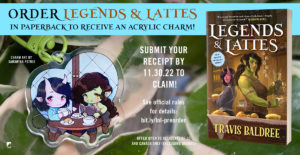










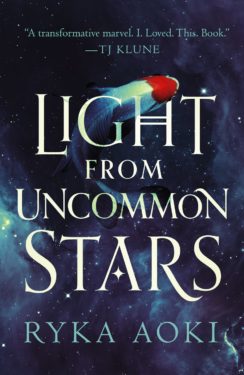 Light From Uncommon Stars
Light From Uncommon Stars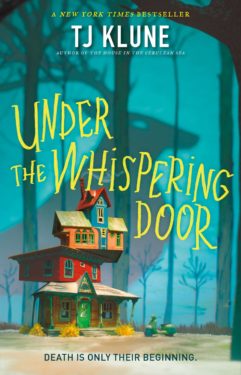 Under the Whispering Door
Under the Whispering Door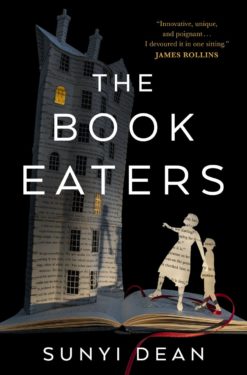

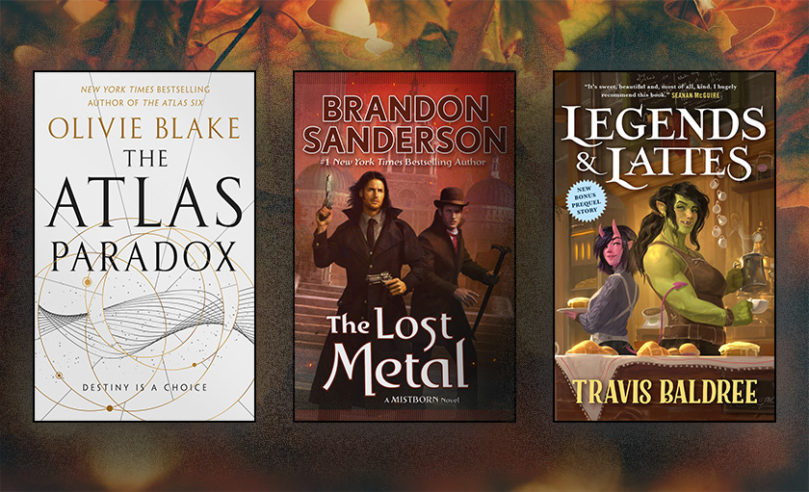
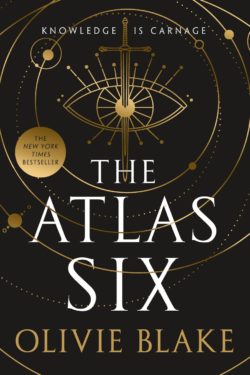 The Atlas Six
The Atlas Six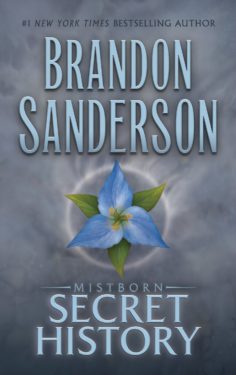 Mistborn: Secret History
Mistborn: Secret History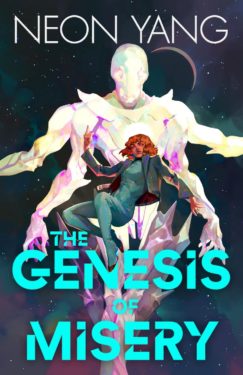 The Genesis of Misery
The Genesis of Misery Growing Up Weightless
Growing Up Weightless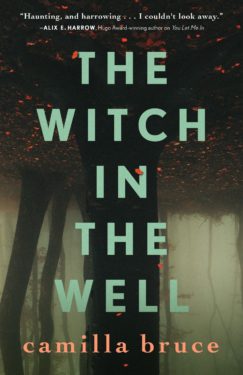 The Witch in the Well
The Witch in the Well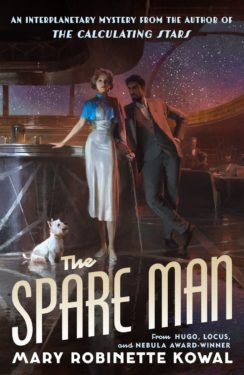 The Spare Man
The Spare Man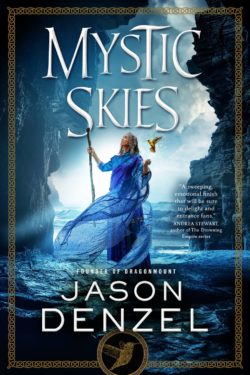 Mystic Skies
Mystic Skies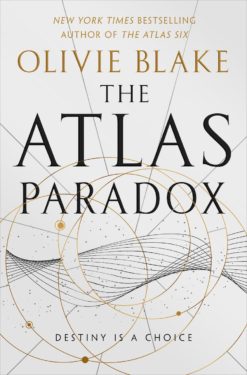 The Atlas Paradox
The Atlas Paradox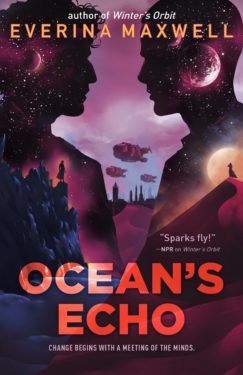 Ocean’s Echo
Ocean’s Echo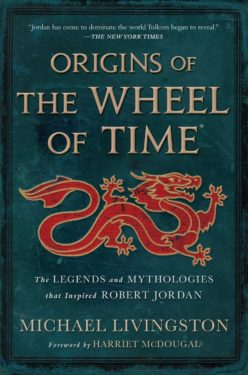 Origins of the Wheel of Time
Origins of the Wheel of Time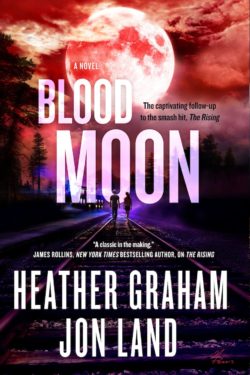 Blood Moon
Blood Moon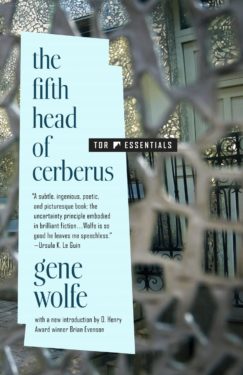 The Fifth Head of Cerberus
The Fifth Head of Cerberus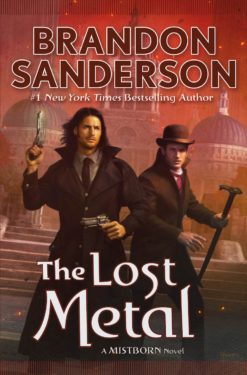 The Lost Metal
The Lost Metal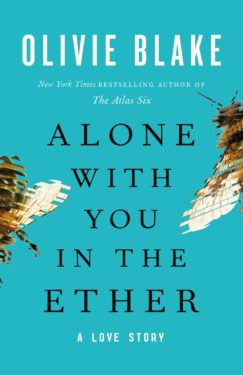 Alone With You in the Ether
Alone With You in the Ether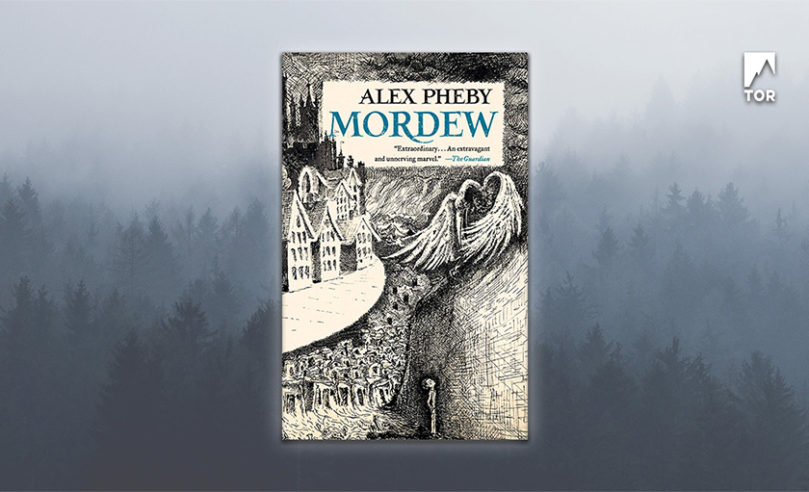
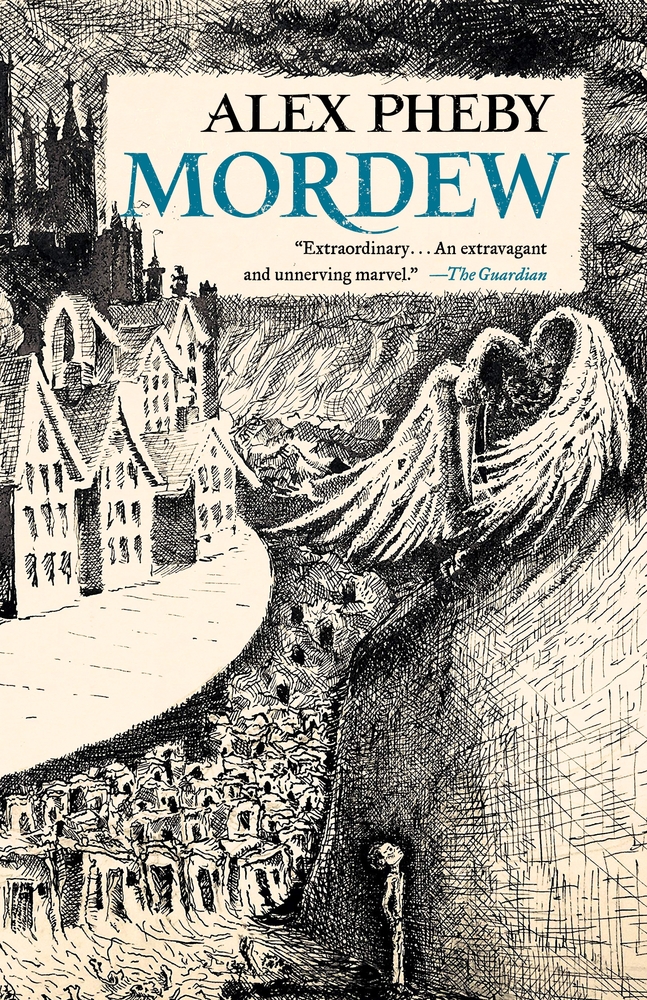 Alex Pheby’s Mordew launches an astonishingly inventive epic fantasy trilogy.
Alex Pheby’s Mordew launches an astonishingly inventive epic fantasy trilogy.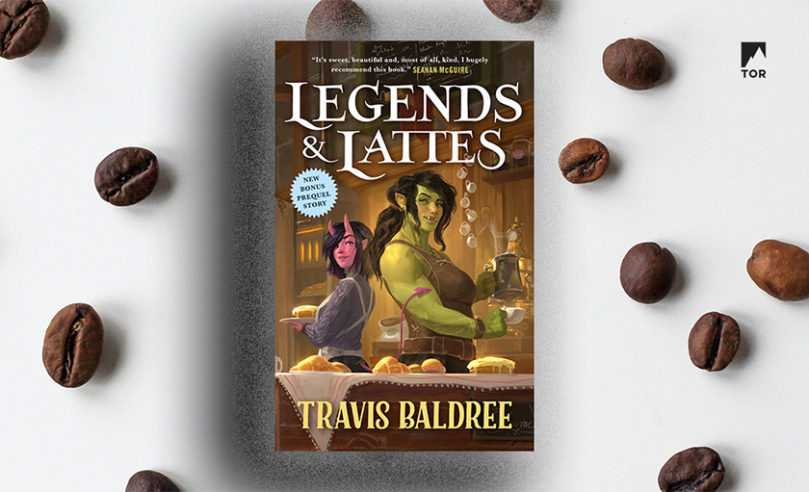
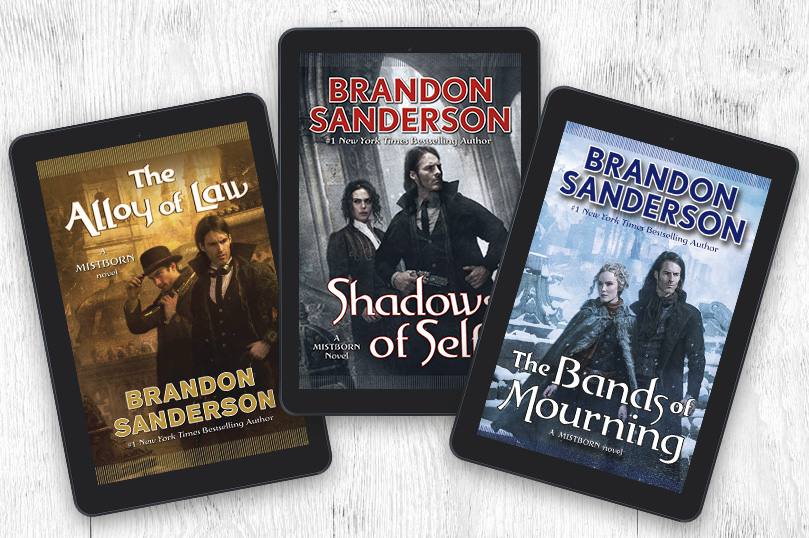
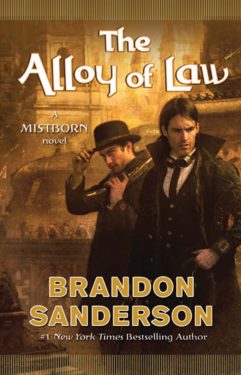 The Alloy of Law
The Alloy of Law




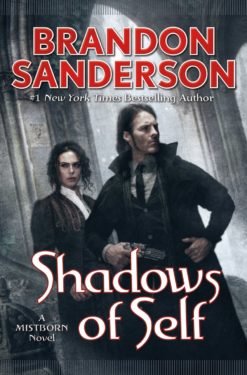 Shadows of Self
Shadows of Self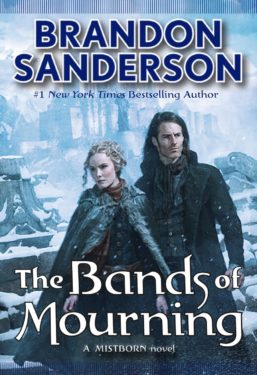
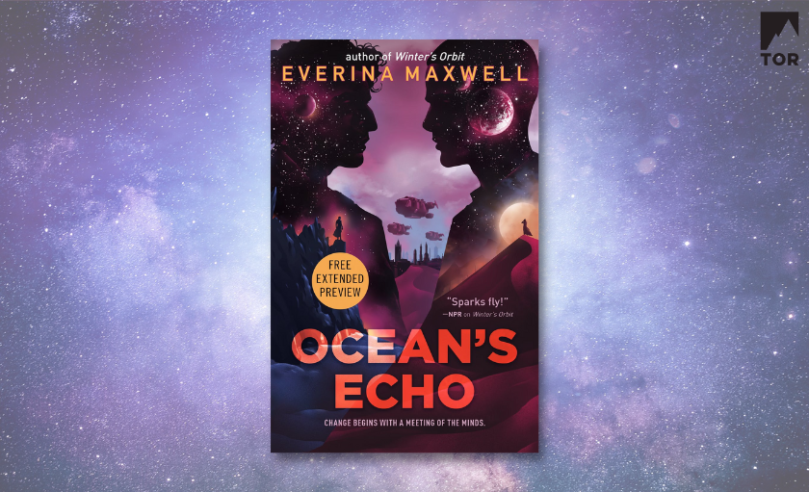
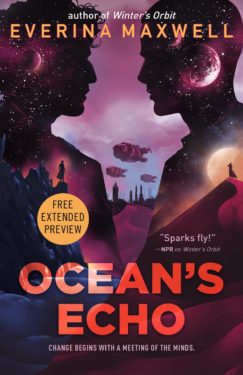

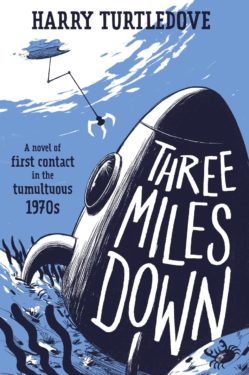 Do you love aliens in sci-fi? Are you fascinated by all the different ways extraterrestrial life can be brought to the pages of books? So does Harry Turtledove, author of
Do you love aliens in sci-fi? Are you fascinated by all the different ways extraterrestrial life can be brought to the pages of books? So does Harry Turtledove, author of 